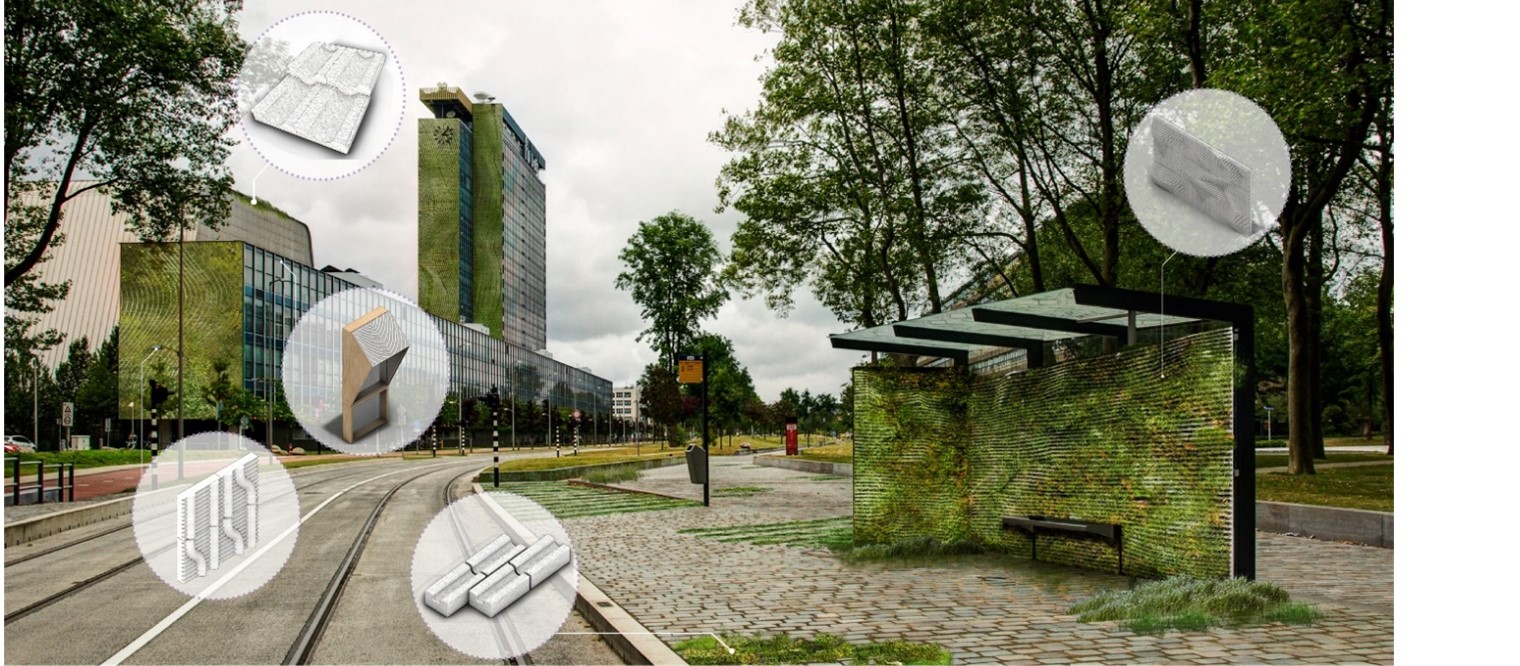Up-cycling Glass Waste for Bioreceptive Applications by Foaming

Abstract
This research discusses the potential of upcycling glass for bioreceptive applications in the urban environment, proposing a paradigm shift in design philosophy to address escalating linear glass waste streams and mitigate challenges posed by extreme weather phenomena and air pollution. By harnessing the benefits of bioreceptivity as an alternative to conventional green living wall systems, a novel idea of exploiting unutilised glass waste is explored, through engineering the optimum microporosity to enhance water retention from the surrounding environment. The method of glass foaming is investigated, as the means to achieve a capillary-porosity (open pore) network that can incorporate large amounts of waste into the recipe. A total of 22 different samples were produced to study the parameters related to the mixture, foaming process, and potential biofilm formation. Microscopic analysis was conducted initially, followed by a series of preliminary experiments designed to inform subsequent sample iterations based on promising findings related to their hydraulic performance. All samples were assessed for their water absorption, evaporation rate and frosting resistance. The test results pinpointed two iterations showcasing superior performance: (1) contaminated soda-lime powder with 10wt% CaCO3 as foaming agent, formed at 840°C, (2) a mixture with a ratio of 1:1 with borosilicate and soda-lime glass powder with 0.33wt% Carbon black and 1.66wt% CaHPO4, formed at 790°C. The two selected formulations were further tested for moss-growth and compressive strength. Based on the findings regarding foaming for bioreceptivity, the study suggests that façade tiles represent one of the most promising market applications, offering a means to transform unexploited urban surfaces to green substrates for bio-growth.
Published
Issue
Section
Circularity & Sustainable Solutions
License
Copyright (c) 2024 Georgina Giassia, Telesilla Bristogianni, Faidra Oikonomopoulou

This work is licensed under a Creative Commons Attribution 4.0 International License.



